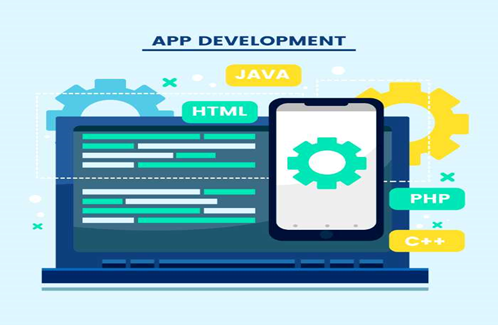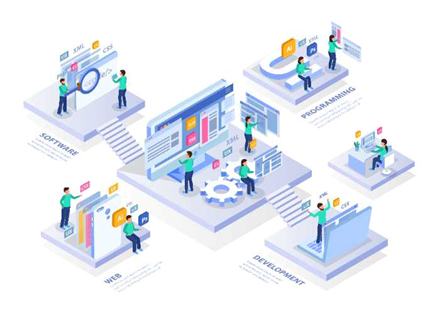How to Start an App – 8 Steps You Must Take Before Starting Mobile App Development | Chester Apps
How to Start an App – 8 Steps You Must Take Before Starting Mobile App Development
When you have an amazing idea for an app, it’s natural to want to start developing it right away. However, there are a few crucial steps you must take before starting mobile app development. This guide will walk you through eight of the most important steps to take before starting your app. By following these tips, you’ll be well on your way to launching a successful app!

1 . Do some market research
Before starting development on your app, it’s important to do some market research. This will help you determine if there is a need for your app and if there are already similar apps on the market around Chester area. To do this, you can search online for keywords related to your app idea and see what comes up. You can also ask friends and family if they know of any similar apps. You may find games, tools, and other applications that will help you meet your objectives. There’s a lot of stuff out there for you to explore once you know what to look for. If there aren’t many apps that meet the description, it might be good news or bad news. On the other side, there could be a lack of competition in the market, allowing new app firms to enter.
2. Define your elevator pitch and target audience
After you’ve done your market research, it’s time to define your elevator pitch and target audience. An elevator pitch is a short, one-sentence description of your app. It should be clear, concise, and easy to understand. For example, “My app helps busy people make better decisions by giving them quick access to information.” This elevator pitch will be used to market your app, so make sure it’s catchy and memorable!
Your target audience is the group of Chester based people who are most likely to use and benefit from your app. When defining your target audience, consider their demographics, such as age, gender, location, interests, and needs. For example, if you’re developing a productivity app, your target audience might be busy professionals.
3. Choose between native, hybrid, and web apps.
After you’ve done your market research and defined your target audience, it’s time to choose between native, hybrid, and web apps. Native apps are developed specifically for one platform, such as iOS or Android. Hybrid apps are developed for multiple platforms but are built using web technologies. Web apps are designed to be accessed via a web browser. Each type of app has its own advantages and disadvantages, so it’s important to choose the one that’s right for your app.
If you’re not sure which type of app to choose, you can ask yourself a few questions:
• What platforms do my target users use?
• What kind of user experience do I want to provide?
• What are my development resources?
Answering these questions will help you narrow down your options and choose the right type of app for your needs.
4. Know all of your monetization choices
There are many ways to monetize your app. You can choose to sell it for a one-time fee, charge a monthly subscription, or make money through in-app purchases. You can also choose to advertise within your app. Each monetization model has its own advantages and disadvantages, so it’s important to choose the one that’s right for your app.
Selling your app for a one-time fee is a good option if you want to make money up front and don’t mind having fewer users. Charging a monthly subscription is a good option if you want to have recurring revenue, but it’s important to make sure your app provides enough value to justify the subscription fee. In-app purchases are a good option if you want to offer additional content or features to users who are willing to pay for them. And finally, advertising is a good option if you want to generate revenue without charging for your app.
5. Create a marketing strategy for your app and create a head of steam before it goes live.
Creating an app marketing plan is a crucial step in the pre-launch phase of your app development. You need to identify your target audience and figure out where they can be found. You also need to decide what kind of message you want to send them and how you’re going to communicate it. And finally, you need to create a budget and timeline for your app marketing campaign.
Building up a head of steam before your app is launched is also important. You can do this by creating a website, starting a blog, and building up a social media presence. These activities will help you create buzz around your app and generate interest from potential users.
6. Make preparations for app store optimization.
One of the most important aspects of marketing your app is making sure it’s optimized for the app store. This process, known as
app store optimization (ASO), involves optimizing your app’s title, keywords, description, and screenshots to make it more visible and appealing to potential users.
There are a few things to keep in mind when optimizing your app for the app store:
• Your app’s title should be clear and descriptive.
• Your app’s keywords should be relevant and targeted.
• Your app’s description should be concise and to the point.
• Your app’s screenshots should be high quality and show off your app’s best features.
By following these tips, you can make your app more visible and appealing to potential users, which will help you generate more downloads.
7. Recognize your resources.
Before you start development, it’s important to know what resources you have available.
This includes your budget, your timeline, and your team’s skills and experience. Your budget will determine how much money you can spend on developing your app. Your timeline will determine how long you have to develop your app. And your team’s skills and experience will determine what they’re able to do.
By understanding your resources, you can set realistic expectations for your app and avoid any surprises down the road.
8. Check that all necessary security precautions have been taken.
When you’re developing an app, it’s important to take security precautions to protect your users’ data. This includes encrypting sensitive data, using secure servers, and implementing authentication and authorization measures. By taking these precautions, you can help ensure that your app is safe and secure for your Chester app users.

If you’re looking for help with pre-launch app development. We can help you with everything from market research to app store optimization. We’ll work with you to create a custom plan that fits your needs and budget. So don’t wait any longer, contact Chester Apps today, and let’s get started!
